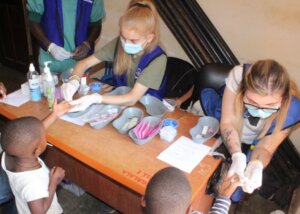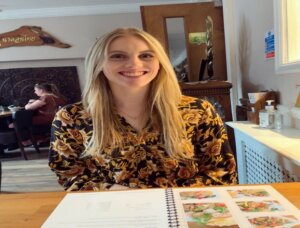When I thought about what being a teacher would be like, I imagined the lesson planning, I imagined the parents’ evenings, and I imagined these fascinating engaging lessons where children love to learn. I basically imagined utopia. I wasn’t prepared for just how much I’d fall in love with it – and for none of those reasons. At least not primarily.
I’ve been lucky enough to be on a placement in a school that completely matches my ethos and values. It’s not hearts and flowers, its real and raw. Every day I see the real value that great teachers have on young people’s lives. I see the impact that a difficult home life can have on the children when they come into school. These teachers are special. They’re a safe place. Often the only safe place that child has. What I’ve found, is a school that truly puts the needs of EVERY child first. Not for OFSTED, nor for exam results or league tables. For those children. The children that come in with no breakfast, the children who have anxiety, the children who have complex SEND needs, the children who struggle to write their name. All of them. It’s all built on the relationships the teachers have formed with them. Real relationships where both parties truly care for one another. Genuine affection for the children in their care. And as a parent, that’s all we want for our babies – that the people who care for them REALLY care for them.
There are children, even now, who have been moved from school to school, often citing behavioural issues. But what happens when they reach the end of the road? When no other schools will take them? Should we really live in a society where a child is condemned with no hope for education? Surely that’s not the answer. Surely, as a society in one of the richest nations in the world, there’s an answer that doesn’t involve educational exclusion and isolation? I recently read some research by Education Publishing Worldwide that suggested that SEND diagnosis was, in itself, a postcode lottery, meaning that in some places, the likelihood of a SEND diagnosis was considerably smaller purely as a result of location. It was found that SEND diagnoses were disproportionately smaller in more affluent areas. Which got me thinking, as a parent, the quality of teaching my child gets may completely depend on what postcode the school is in. Ultimately all behaviour is, is a reaction. I’ve lost count of the number of times as a parent I’ve been told that toddlers hitting, biting, shouting, crying etc is a normal stage of development and is purely a reaction as that is their only way of communicating. Yet, as a society, we expect that every child, as soon as they hit the compulsory schooling age are perfectly compliant with the emotional intelligence of an adult. Which is a complete contradiction of the other thing that’s drilled into you as a parent – that every child is different, and every child develops at a different rate. Don’t worry if your 2 year old isn’t talking yet, don’t worry if your 3 year old is still wearing nappies, they’ll do it in their own time. Until they’re 5. Then they’ll do it when we want them to and not a moment later! Some of these children have such complex needs, that they might not be far off a typical 2 year old developmentally, yet we seem to demonise them. What does that do for the child that is constantly told that they’re naughty? What does it do for the child who gets no support? Nothing changes, because why would it? How could it?
What I’ve seen, is a school that nurtures the children others have deemed a lost cause. Teachers that make a real difference to people’s lives that goes way beyond a curriculum. That’s why I went into teaching. Not for the parents’ evenings, or lesson planning, but to make a difference. To inspire children and believe in them in case no one else will. I may be in the infancy of my teaching career, but I know that I have met people who inspire me to be the best teacher I can be. I don’t profess to be an expert in anything I’ve talked about, far from it. What I do know, is that that expertise is my responsibility to gain, throughout my teaching career. My learning will never end. The day it does, is the day I stop.
Lisa is a first year BA (Hons) Primary Education student at the University of Sunderland.




